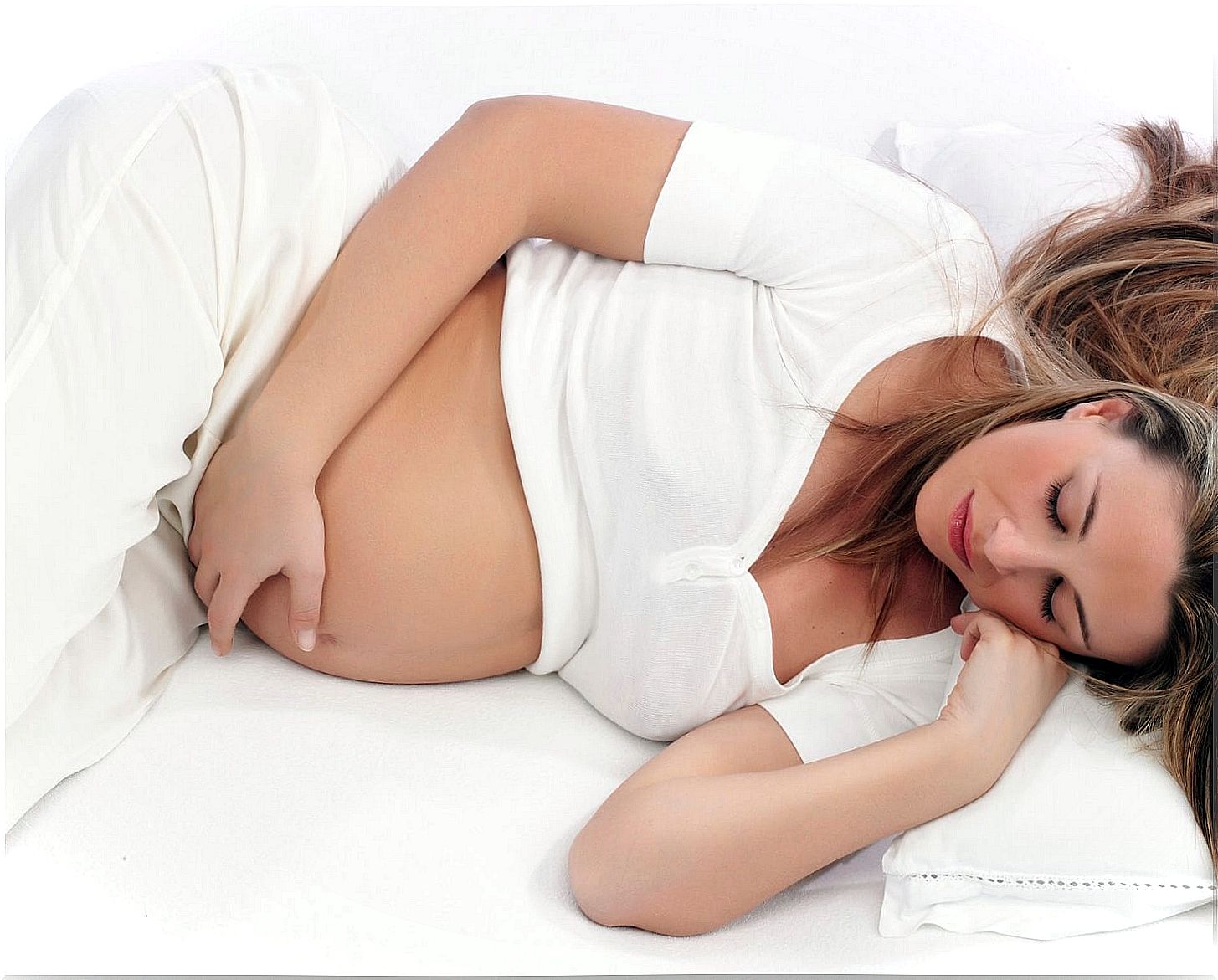Sleep Disorders During Pregnancy

Everyone knows that pregnancy is not a disease. But even so, there is a long list of side effects. More than ever, you need a lot of sleep to keep your energy levels up. But many women suffer during pregnancy to sleep.
Parents-to-be know they will get little sleep after having their baby. Newborn babies need a lot of attention.
In the first few months, the baby wakes up several times a night to be fed, diapered or just to be comforted.
In fact, the parents have to sleep immediately after the baby is born, the biggest problems, but women often suffer during pregnancy under sleep long before the baby was born.
Even in the first trimester, they need more rest than usual. This is completely normal: the body is tired of all the changes that are going on inside.
 During this phase, the placenta forms and the body produces large amounts of blood. This process takes a lot of energy and you will likely feel tired all the time.
During this phase, the placenta forms and the body produces large amounts of blood. This process takes a lot of energy and you will likely feel tired all the time.
The problem, however, is that many women struggle to sleep during pregnancy. Together with the physical complaints, lack of time and fear play a role.
This is why it is important to learn how to sleep each trimester of pregnancy. If you want to learn more about your sleep needs, here’s everything you need to know.
Difficulty sleeping during pregnancy
With all the hormonal and physiological changes that happen during pregnancy, it’s hardly surprising that most women have difficulty falling asleep.
Each trimester brings its own set of challenges to get enough rest.
First trimester of pregnancy
In the first phase of your pregnancy, you will find that you will feel much more tired during the day. You lack the energy to carry out everyday tasks that you previously did without any problems.
Changes in sleep behavior can occur at night. This is due to the physical strain and emotional stress you are exposed to.
You will also have to get up and go to the bathroom several times a night. This breaks your sleep and makes you even more tired the next day.
In fact, you may occasionally feel nauseous and vomit, not just during the day but also at night, which means you have to get up and go to the bathroom again.
Second trimester of pregnancy
In the second trimester of pregnancy, sleep disorders and other typical pregnancy symptoms decrease for most women.
However, there are also some issues that can affect sleep at this stage. It is important to recognize them when they occur.
On the one hand, you don’t have to get up to go to the bathroom as often and you can sleep more deeply. On the other hand, your belly will start to grow.
As a result, you are likely to have difficulty finding the correct sleeping position and heartburn or indigestion at night.

Third trimester
In the third and final stage of pregnancy, most women have difficulty sleeping. At this point, you feel heavy and uncomfortable. You are going through big changes both physically and emotionally.
Symptoms such as leg cramps, nasal congestion, and muscle pain may occur during this phase. You may have difficulty moving around in bed and finding the right position to sleep in.
You have to get up regularly to go to the bathroom as your baby is pressing on your bladder.
Once you know what to expect each trimester and why, you will be better prepared to get the rest you need.
Sleep disturbances during pregnancy are absolutely normal and almost all pregnant women experience it from time to time.









